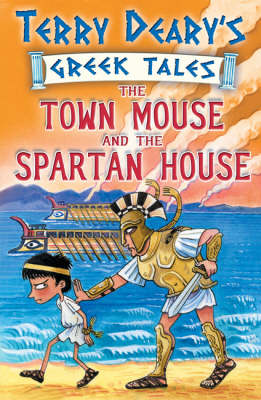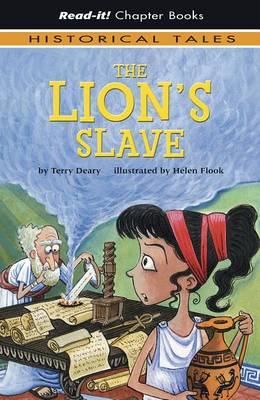Read It! Chapter Books
4 total works
1180 BC. Young Acheron is a liar. Everybody knows it. Troy is under siege and Acheron tells tales of Trojan bravery to entertain Prince Paris and the beautiful Helen at the palace. But when a stranger comes to the city to announce that the Greeks have departed, leaving a special gift of a wooden horse, Acheron is suspicious. He races to tell Prince Paris about the Greek plot, but will anyone at the palace believe him? Er, no, actually! As Aesop said, "There is no believing a liar, even when he speaks the truth."
750 BC. The boys at school are excited. The Olympic games are coming to the city. They may be too young to compete, but their teacher suggests the school should have its own games. Of course, girls have no part at all in these festivities, so Elena can only watch as her twin brother, Cypselis, prepares for the race. Then she discovers he has made a bet with Big Bacchiad (the school bully). If Cypselis wins he will get a new goat, if he loses then Elena will become Bacchiad's slave. Elena's freedom is at stake - she needs all her cunning to make sure her brother wins. But will he? As Aesop said, 'Slow and steady wins the race.'
430 BC. Darius has been orphaned by the plague in Athens. To escape the sickness he runs off to join his Uncle Alcmaeon who is a general with the Spartan army. But he finds the Spartan way of life quite shocking. To the arrogant and ruthless Spartans, he is as worthless as a mouse. Then his uncle falls sick and only Darius can find a cure. Now Darius is a hero and his uncle offers him a life of luxury in Sparta. Still Darius finds the brutal Sparta too much and wants to go back to plague-stricken Athens. As Aesop said, 'Better beans and bacon in peace than cakes and ale in fear.'
213 BC. The great inventor Archimedes has just one problem. His clumsy servant, young Lydia, is the bane of his life. But when the Romans besiege Syracuse, and the Greeks turn to Archimedes for help, it is young Lydia who always seems to come up with the answers. Of course Archimedes is a lion in the eyes of the folk of Syracuse. He takes all the credit, but that's life for a Greek girl slave. As Aesop said, 'You may share the labours of the great, but you will not share the rewards.'


